Introduction: Understanding Lavender Oil
When it comes to essential oils, lavender oil is a popular choice due to its versatility and numerous benefits. Obtained through distillation from the lavender plant, this oil has been valued for its medicinal and therapeutic properties for centuries. Its soothing scent makes it a common ingredient in aromatherapy products that promote relaxation and stress relief.
Lavender oil has also been found to aid in sleep and relieve insomnia. Its calming properties can help improve the quality of sleep and reduce the amount of time it takes to fall asleep. In addition, it has been shown to have pain-relieving and anti-inflammatory properties, which make it a natural remedy for sore muscles and joint pain.
When it comes to skincare, lavender oil is a popular ingredient due to its soothing and healing properties. Its natural antiseptic qualities make it an effective remedy for treating wounds and preventing infections. It can also be used to soothe skin conditions such as acne, eczema, and psoriasis.
- Lavender oil can also be used to combat respiratory issues such as coughing and congestion. Its anti-inflammatory and antibacterial properties can help to reduce inflammation in the respiratory tract and clear congestion.
- For those struggling with nervous tension and anxiety, lavender oil has a calming effect that can help to promote relaxation and reduce feelings of stress and anxiety. In addition, it has been found to help improve cognitive function and memory retention, making it useful for boosting brain health.
Overall, lavender oil is a versatile and useful essential oil that has been valued for its numerous benefits for centuries. Whether you’re looking to improve your sleep quality, soothe your skin, or simply promote relaxation, this oil is definitely worth considering.
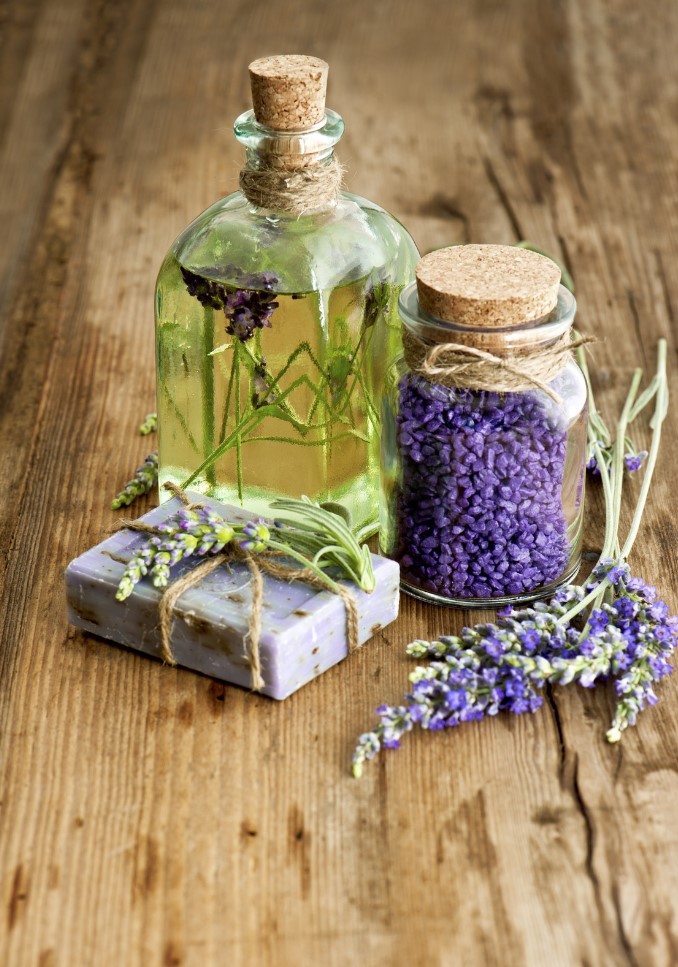
Promoting Relaxation And Reducing Stress
Are you feeling stressed and overwhelmed? Do you find yourself unable to relax and unwind after a long day? Well, lavender oil might just be what you need to promote relaxation and reduce stress.
Derived from the flowers of the lavender plant, lavender oil has been used for centuries for its calming and soothing properties. One of the main benefits of using lavender oil is its ability to help reduce stress and anxiety. Research has shown that the scent of lavender has a calming effect on the nervous system, helping to reduce feelings of tension and promoting relaxation.
If you’re looking to incorporate lavender oil into your relaxation routine, there are several ways to do so. You can add a few drops of lavender oil to your bathwater or use it in a diffuser to fill your home with its relaxing scent. You can also apply lavender oil topically by diluting it with a carrier oil, such as coconut or almond oil, and massaging it into your skin.
- Another benefit of using lavender oil is that it can help improve sleep quality. Adding a few drops of lavender oil to your pillow can help you fall asleep faster and stay asleep longer, while also reducing feelings of anxiety that may keep you awake at night.
- Additionally, lavender oil can help relieve headaches and migraines by reducing inflammation and promoting relaxation in the body.
| Uses of Lavender Oil for Reducing Stress | Description |
|---|---|
| Promotes relaxation | The scent of lavender has a calming effect on the nervous system, helping to reduce feelings of tension and promote relaxation. |
| Improves sleep quality | Adding a few drops of lavender oil to your pillow can help you fall asleep faster and stay asleep longer, while also reducing feelings of anxiety that may keep you awake at night. |
| Relieves headaches and migraines | Lavender oil can help reduce inflammation and promote relaxation in the body, which can help relieve headaches and migraines. |
In conclusion, lavender oil is a natural and effective way to promote relaxation and reduce stress. Its calming and soothing properties make it a popular choice for those looking to incorporate natural remedies into their relaxation routine. So why not give it a try and see the benefits for yourself?

Aiding İn Sleep And Insomnia Relief
Are you having trouble sleeping? Do you find yourself struggling with insomnia every night? Well, fear not because lavender oil may just be the solution you need to get a good night’s rest.
Studies have shown that lavender oil has properties that help promote relaxation of the mind and body. It has the ability to lower heart rate and blood pressure which are key factors in achieving a calm and relaxed state. By inhaling the scent of lavender oil before bedtime, you can improve the quality of your sleep and decrease the chances of waking up in the middle of the night.
- How to use lavender oil for sleep:
- Add a few drops of lavender oil to a diffuser or vaporizer and let it fill the room with its calming scent.
- You can also add a few drops to your pillow or bed sheets to have it right under your nose while you sleep.
- Alternatively, you can create a lavender oil spray by adding a few drops to a small bottle of water and spraying it on your pillow and bed sheets.
Lavender oil has also been found effective in treating mild cases of insomnia. Applying a few drops of lavender oil to your temples or the bottoms of your feet before bedtime, has been shown to help induce a deeper and longer sleep. It is also found to be very useful in calming anxious thoughts and reducing stress levels, which in turn, helps you fall asleep faster and stay asleep throughout the night.
In conclusion, lavender oil is a natural and effective remedy to aid in sleep and insomnia relief. By incorporating it into your bedtime routine, you can achieve the much-needed rest your body deserves.
Relieving Pain And Inflammation
Relieving Pain And Inflammation – When you think of lavender oil, you might picture fields of purple flowers swaying in the breeze. But did you know that this oil is also an effective pain reliever and anti-inflammatory agent?
Lavender oil can be applied topically to sore muscles and joints to reduce pain and inflammation. Simply dilute a few drops of lavender oil in a carrier oil like coconut or almond oil, and massage it into the affected area. The calming scent of lavender can also help soothe feelings of tension and stress that often accompany pain.
But the benefits of lavender oil as a pain reliever aren’t just limited to physical discomfort. This essential oil has also been shown to have a positive impact on mental health. Research has found that inhaling lavender oil can reduce anxiety and promote relaxation, which may help ease the emotional pain often associated with chronic conditions like arthritis.
- In addition to reducing pain and inflammation, lavender oil can be used to:
- Relieve headaches and migraines
- Improve digestive health and reduce bloating
- Soothe skin and treat skin conditions
- Combat respiratory issues like coughing and congestion
| Product | Size | Price |
|---|---|---|
| Lavender Essential Oil | 10ml | $9.99 |
| Lavender Massage Oil | 100ml | $19.99 |
| Lavender Bath Salts | 500g | $14.99 |
Overall, lavender oil is a versatile natural remedy that can help improve both physical and mental wellbeing. Whether used topically or aromatically, this essential oil can help alleviate pain and inflammation while promoting relaxation and reducing stress levels. So why not give it a try and experience the benefits for yourself?
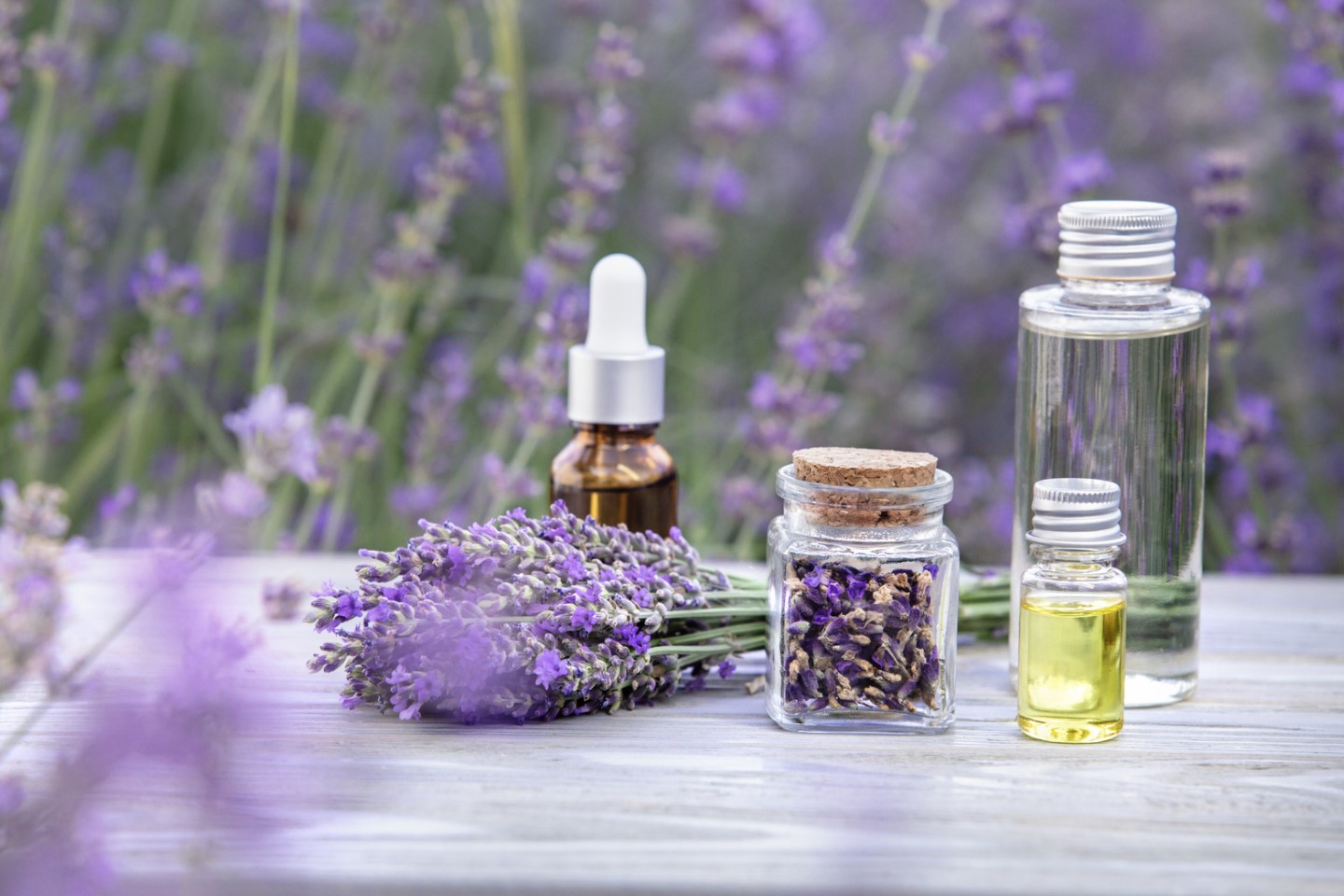
Natural Antiseptic Properties For Wound Healing
When it comes to healing wounds, there are various natural remedies available. One popular option is lavender oil, which has natural antiseptic properties that aid in wound healing. This oil has been used for centuries in traditional medicine practices, particularly in preparing ointments and poultices for skin ailments. Lavender oil contains compounds that help prevent infections and promote healing in minor cuts, grazes, and burns.
Using lavender oil for wound healing is simple, with a few drops applied to the affected area. The oil is absorbed quickly into the skin, reducing the risk of irritation or allergic reactions. When combined with a carrier oil like coconut or grapeseed oil, lavender oil can be applied as a dressing to wounds for extended periods, helping to keep the area clean and dry, thus speeding up the healing process.
- The natural antiseptic properties of lavender oil make it a great remedy for people with sensitive skin who want to avoid synthetic antiseptic creams and ointments.
- Pure lavender oil can also be added to a warm bath to promote healing in wounds, while simultaneously soothing and relaxing the body and mind.
| BENEFITS OF LAVENDER OIL FOR WOUND HEALING: |
|---|
| 1. Prevents Infections: Lavender oil has antimicrobial properties that help prevent bacteria and viruses from infecting wounds, reducing the risk of spreading infections. |
| 2. Promotes New Cell Growth: Lavender oil stimulates the growth of new skin cells, promoting the regeneration of damaged tissues, which is crucial for wound healing. |
| 3. Reduces Inflammation: The anti-inflammatory properties of lavender oil help reduce swelling and inflammation, which can often occur around a wound area. |
| 4. Improves Circulation: Lavender oil promotes blood circulation to the wound’s affected area, which speeds up the healing process by providing the body with the necessary nutrients and oxygen. |
In conclusion, lavender oil’s natural antiseptic properties make it an excellent option for wound healing. Whether you use it as a dressing or add a few drops to your warm bath, lavender oil can help prevent infections, promote new cell growth, reduce swelling and inflammation, and improve blood circulation for faster healing. It’s an efficient and natural way to treat minor cuts, grazes, and burns without using synthetic creams and ointments.
Soothing Skin And Treating Skin Conditions
Looking for a natural solution to soothe irritated skin and alleviate skin conditions? Look no further than Lavender Oil. Known for its calming effects, Lavender Oil has long been used to treat a variety of skin issues, from acne to eczema. Here’s how:
Soothing Sunburns: Lavender Oil has anti-inflammatory properties that can help soothe sunburned skin. Simply dilute a few drops of Lavender Oil with a carrier oil like coconut oil and apply to the affected area for relief.
Alleviating Eczema: Eczema can be itchy and uncomfortable, but Lavender Oil can help. It can reduce inflammation and soothe the skin, helping to alleviate symptoms. Simply mix a few drops of Lavender Oil with a carrier oil and apply to the affected area as needed.
- Reducing Acne: Lavender Oil has antibacterial properties that can help reduce acne. Applying diluted Lavender Oil to acne-prone areas can help kill bacteria and reduce inflammation.
- Treating Psoriasis: Lavender Oil can help alleviate the symptoms of psoriasis, a chronic skin condition that causes patches of red, itchy skin. Massage diluted Lavender Oil onto affected areas to reduce redness and inflammation.
Preventing Scarring: Lavender Oil can also help prevent scarring from acne, cuts, and other skin injuries. Its skin regenerating properties can help reduce the appearance of scars over time.
| How to Use Lavender Oil for Soothing Skin | |
|---|---|
| 1. | Mix a few drops of Lavender Oil with a carrier oil like coconut oil or jojoba oil. |
| 2. | Apply the mixture to the affected area and massage gently. |
| 3. | Repeat 2-3 times daily as needed. |
There are many other ways Lavender Oil can benefit your skin, making it a valuable addition to your skincare routine. As with any essential oil, it’s important to dilute it properly and patch test before use. Give it a try and experience its soothing effects for yourself.
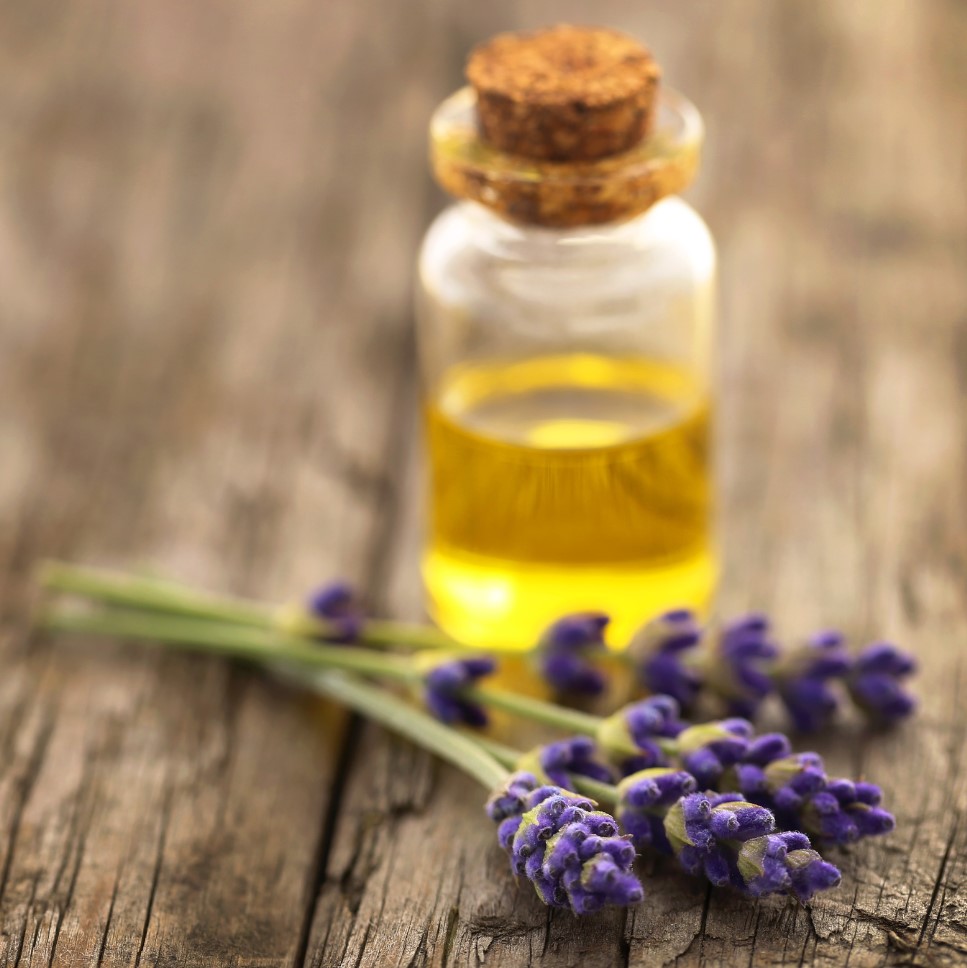
Combatting Respiratory Issues Such As Coughing And Congestion
Respiratory issues such as coughing and congestion can make it difficult to breathe and affect daily life. There are many ways to help alleviate these problems, and one of the most effective methods involves using lavender oil.
Lavender oil is known for its calming and relaxing properties, but it also has antiviral, antibacterial, and antiseptic qualities that make it a great choice for treating respiratory issues. When used in a diffuser, lavender oil can help clear nasal passages and promote easier breathing.
In addition to using a diffuser, lavender oil can also be used for steam inhalation. Simply add a few drops of lavender oil to a bowl of hot water and inhale the steam. This can help loosen mucus and relieve congestion.
- Another option is to add a few drops of lavender oil to a carrier oil such as coconut or almond oil and massage it onto your chest, neck, and back. This can help ease chest tightness and coughing.
- If you’re experiencing coughing, you can also make a cough syrup using lavender oil. Mix a few drops of lavender oil with honey and take a teaspoonful as needed to help ease coughing.
In conclusion, lavender oil is a versatile and effective natural remedy for treating respiratory issues such as coughing and congestion. Whether you use it in a diffuser, for steam inhalation, or topically, it can provide relief and help you breathe easier.
Calming Nervous Tension And Anxiety
Dealing with anxiety and nervous tension can be a daily struggle for many people. Symptoms such as restlessness, irritability, and difficulty concentrating can make it hard to carry out daily tasks. Fortunately, there are natural remedies available to help manage these symptoms. One such remedy is Lavender Oil, which has been used for centuries for its calming properties.
Lavender oil is believed to have a soothing effect on the nervous system, helping to reduce anxiety and promote relaxation. It can be used in a number of ways to help manage symptoms of anxiety, such as through inhalation or topical application. Inhaling lavender oil through a diffuser or adding a few drops to a cotton ball and inhaling deeply can help to calm the mind and relax the body.
- Topical application
In addition to inhaling lavender oil, it can also be applied topically to help reduce feelings of anxiety. Diluted lavender oil can be applied to the temples, wrists, or neck to help promote relaxation and calm the mind. It can also be added to a warm bath to help soothe tense muscles and promote relaxation.
It is important to note that while lavender oil can be a helpful tool in managing symptoms of anxiety and nervous tension, it should not be used as a substitute for medical treatment. Always consult with a healthcare professional before using any new remedies or supplements.
| Benefits of using Lavender Oil to Calm Nervous Tension and Anxiety |
| Relaxation |
| Improved sleep |
| Reduced irritability |
| Decreased restlessness |
| Improved concentration |
In summary, using Lavender Oil can be an effective way to manage symptoms of anxiety and nervous tension. Incorporating it into your daily routine through inhalation or topical application can help to promote relaxation and reduce feelings of anxiety. Remember to always consult with a healthcare professional before using any new remedies or supplements.
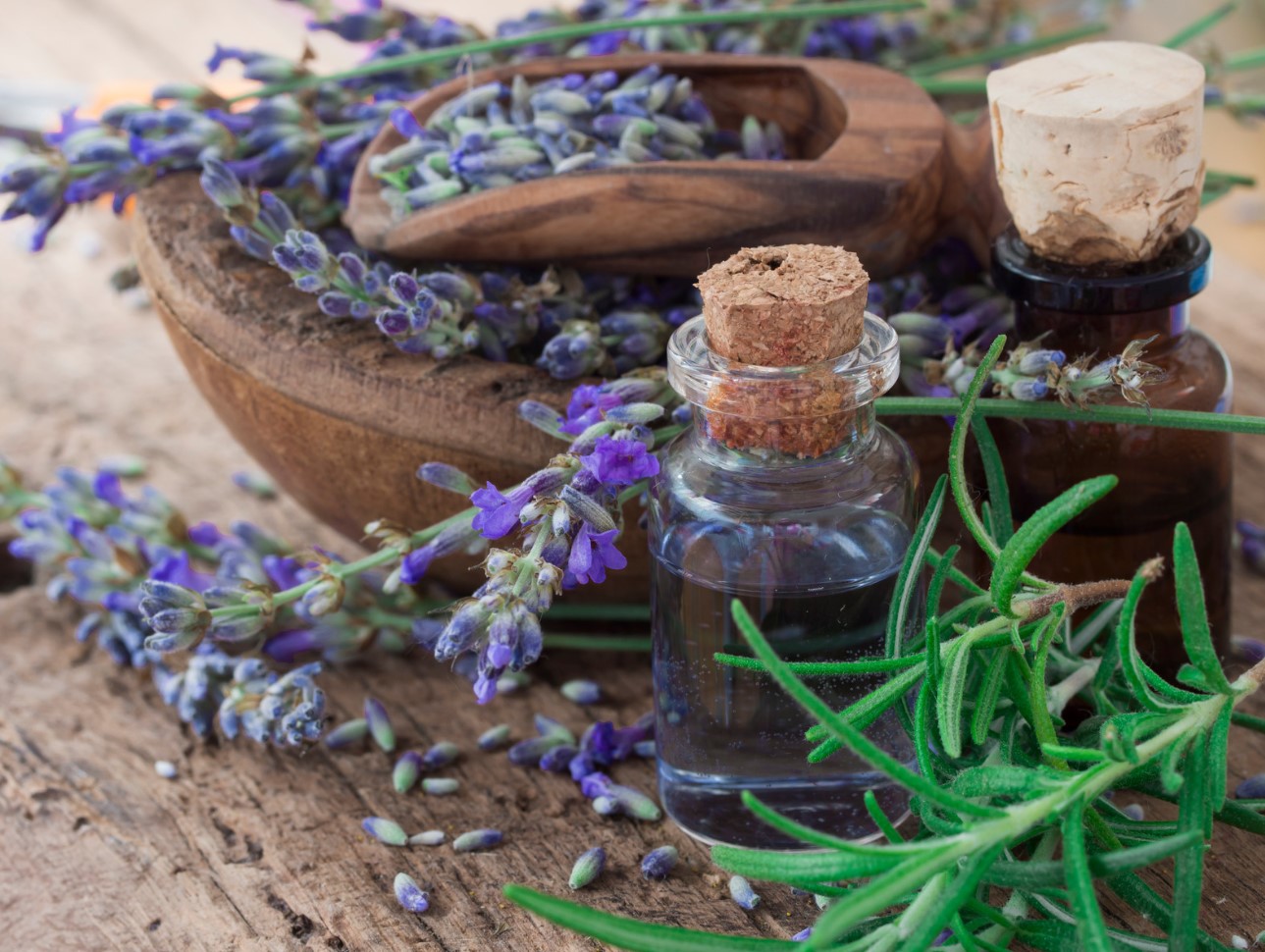
Boosting Brain Function And Memory Retention
When it comes to living a healthy lifestyle, we are always finding ways to improve our physical and mental health. One of the ways to enhance our brain function and memory retention is by using lavender oil. This essential oil has been proven to offer several benefits that can promote mental wellness.
The calming scent of lavender oil can help reduce anxiety and stress levels. This is beneficial for people who often feel overwhelmed and under pressure. A study conducted on college students has shown that the inhalation of lavender oil helped reduce their anxiety levels and aided them in performing better in their exams.
- Inhaling lavender oil can help improve cognitive performance, memory, and attention span.
- Massaging a few drops of lavender oil onto the temples can help relieve headaches and improve concentration.
- Using lavender oil in a diffuser can help create a calming environment that’s beneficial for people dealing with restlessness and insomnia.
Aside from the calming effect of lavender oil, it can also help boost brain function and memory retention through its antioxidant properties. Antioxidants help eliminate toxins and free radicals that can damage cells in the body, including brain cells. By doing this, it can help slow down brain aging and improve memory retention.
| Lavender Oil Benefits For Brain Function And Memory Retention | How To Use Lavender Oil To Boost Brain Function And Memory Retention |
|---|---|
| Calms nervous tension and anxiety | Add a few drops of lavender oil to a diffuser or inhale it directly from the bottle |
| Improves cognitive performance and attention span | Massage a few drops of lavender oil onto the temples |
| Offers antioxidant properties that slow down brain aging | Add a few drops of lavender oil to your bath or use it in a massage oil |
Lavender oil is a natural and effective way of boosting brain function and memory retention. Its soothing scent and antioxidant properties make it an ideal choice for people who wish to enhance their cognitive performance and mental wellness. Try incorporating lavender oil in your daily routine and experience its incredible benefits for yourself.
Managing Symptoms Of PMS And Menopause
For many women, managing symptoms of PMS and menopause can be a challenging task. Mood swings, hot flashes, and bloating are just a few of the unpleasant side effects that women can experience during these hormonal shifts. While there are over-the-counter remedies available, many women are turning to natural solutions such as Lavender Oil to manage their symptoms.
One of the key benefits of Lavender Oil is its ability to promote relaxation and reduce anxiety. This is especially important for women who experience mood swings during PMS and menopause. Diffusing Lavender Oil in a room or adding a few drops to a warm bath can help to alleviate stress and improve overall mood.
- Lavender Oil can also aid in sleep and insomnia relief. Women who are struggling to get a good night’s rest can benefit from diffusing Lavender Oil in their bedrooms or applying it to their pillowcases.
- Another way that Lavender Oil can help manage symptoms of PMS and menopause is by reducing bloating. Massaging Lavender Oil into the abdominal area can help to alleviate bloating and discomfort.
- Finally, Lavender Oil has natural antiseptic properties that can help with wound healing. Women who experience skin irritation during PMS and menopause can benefit from applying Lavender Oil to the affected area.
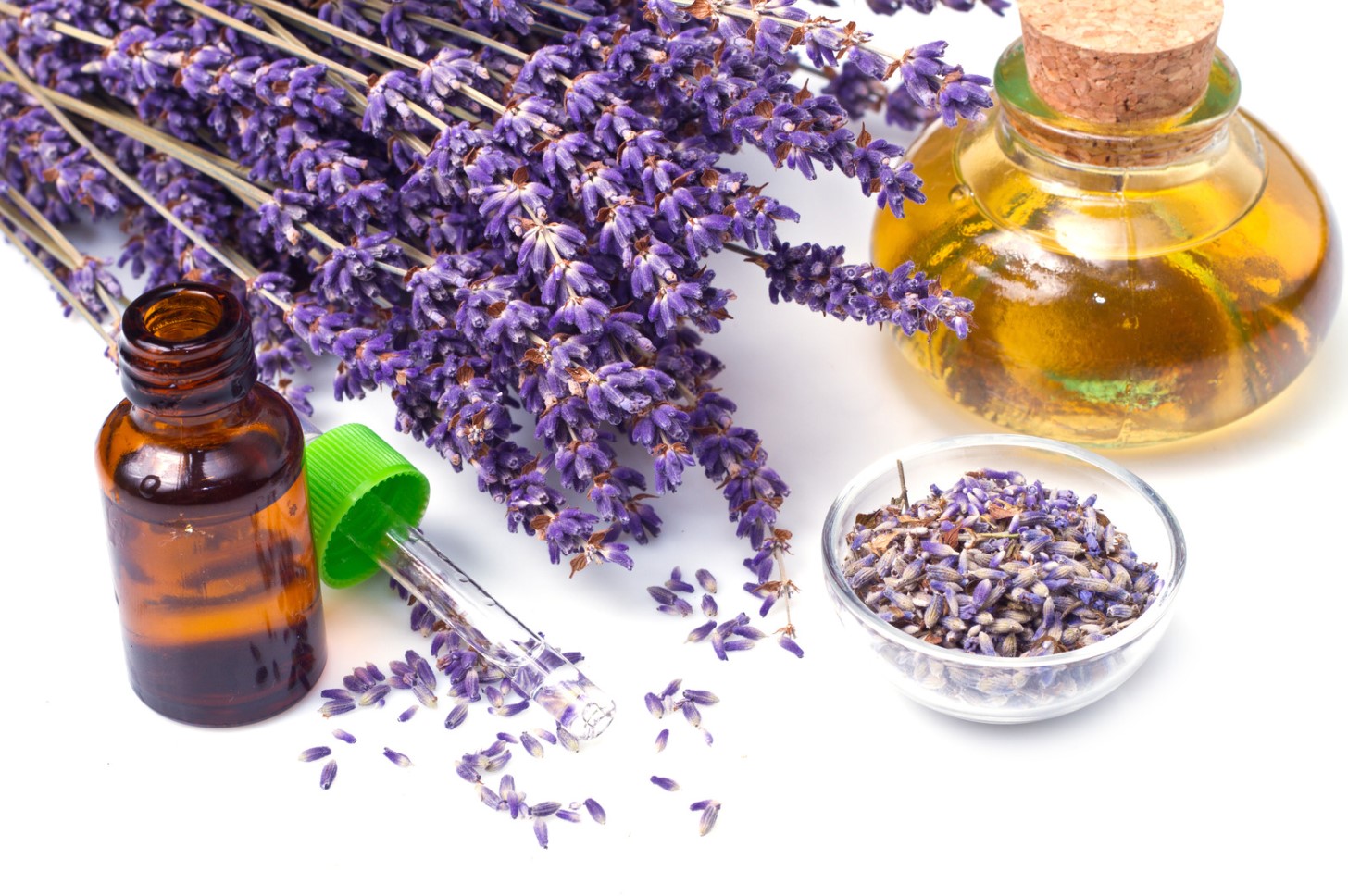
Treating Headaches And Migraines
If you’re a migraine sufferer, you know how debilitating and painful they can be. Migraines can interrupt your daily life and leave you feeling helpless. But what if there was a natural remedy that could help alleviate your pain?
A popular choice for treating headaches and migraines is lavender oil. Lavender oil has been used for centuries for its medicinal properties, including its ability to soothe tension and help calm the nervous system. The oil is extracted from the lavender plant, which is native to the Mediterranean region.
Lavender oil can have a sedative effect on the body, which can help to reduce stress and anxiety. This makes it an excellent remedy for headaches and migraines caused by tension and stress. When inhaled, lavender oil can help to alleviate headache pain and reduce the intensity and frequency of migraines. It’s also been shown to have anti-inflammatory and analgesic effects, which may help to reduce pain associated with migraines.
- Lavender oil can be used in a variety of ways to help treat headaches and migraines:
- Diffuse lavender oil in a room to create a relaxing and calming atmosphere.
- Add a few drops of lavender oil to a carrier oil such as almond or jojoba oil and massage into the temples, forehead and neck.
- Add a few drops of lavender oil to a warm bath and soak for 20-30 minutes.
It’s important to note that while lavender oil can be a helpful remedy for headaches and migraines, it’s not a replacement for medical treatment. If you experience chronic migraines or severe headaches, it’s important to seek medical advice to explore all possible treatment options.
In summary, lavender oil has been shown to have a calming effect on the body and can be helpful in reducing the intensity and frequency of headaches and migraines. It’s a natural remedy that can be used in a variety of ways to help soothe tense muscles and promote relaxation. If you’re looking for an alternative to traditional headache and migraine treatments, lavender oil might be worth giving a try.
Supporting Hair And Scalp Health
Lavender oil is a versatile and widely used essential oil that has numerous benefits for the human body. One of its benefits is in supporting hair and scalp health. Lavender oil has properties that can help treat several scalp conditions, such as dandruff, itching, and dryness. It also helps in the growth of healthy hair by promoting blood circulation in the scalp and reducing hair fall. The oil is gentle and non-toxic, making it safe to use even in larger amounts.
Lavender oil can be used in various ways to support hair and scalp health. One of the easiest ways to use it is by mixing a few drops of the oil with a carrier oil such as jojoba, coconut or sweet almond oil. This mixture can then be massaged into the scalp and left for a few hours before washing off. This helps to nourish and moisturize the scalp and prevent hair breakage. Lavender oil can also be added to your shampoo or conditioner to enhance their effectiveness.
- Lavender oil promotes hair growth and prevents hair loss
- Helps with scalp conditions like dandruff, itching, and dryness
- It is gentle and non-toxic, making it safe to use as a hair care ingredient
Moreover, the calming properties of lavender oil have a relaxing effect on the mind and body, which can indirectly help support hair and scalp health. Stress is known to be a significant contributor to hair loss and other scalp conditions. Using lavender oil can help reduce stress and promote better sleep, thereby supporting hair and scalp health.
| Pros | Cons |
|---|---|
| Helps treat scalp conditions and promote healthy hair growth | May cause an allergic reaction in some people |
| Gentle and non-toxic, safe to use in larger amounts | May not be as effective in treating severe hair loss |
| Has a calming effect that promotes relaxation and sleep | May be expensive when used regularly |
Overall, lavender oil is an excellent ingredient to help support hair and scalp health. However, it’s essential to do a patch test before using the oil to ensure you don’t have an allergic reaction. If you’re looking for a natural and easy way to maintain healthy hair and scalp, then lavender oil is worth a try.
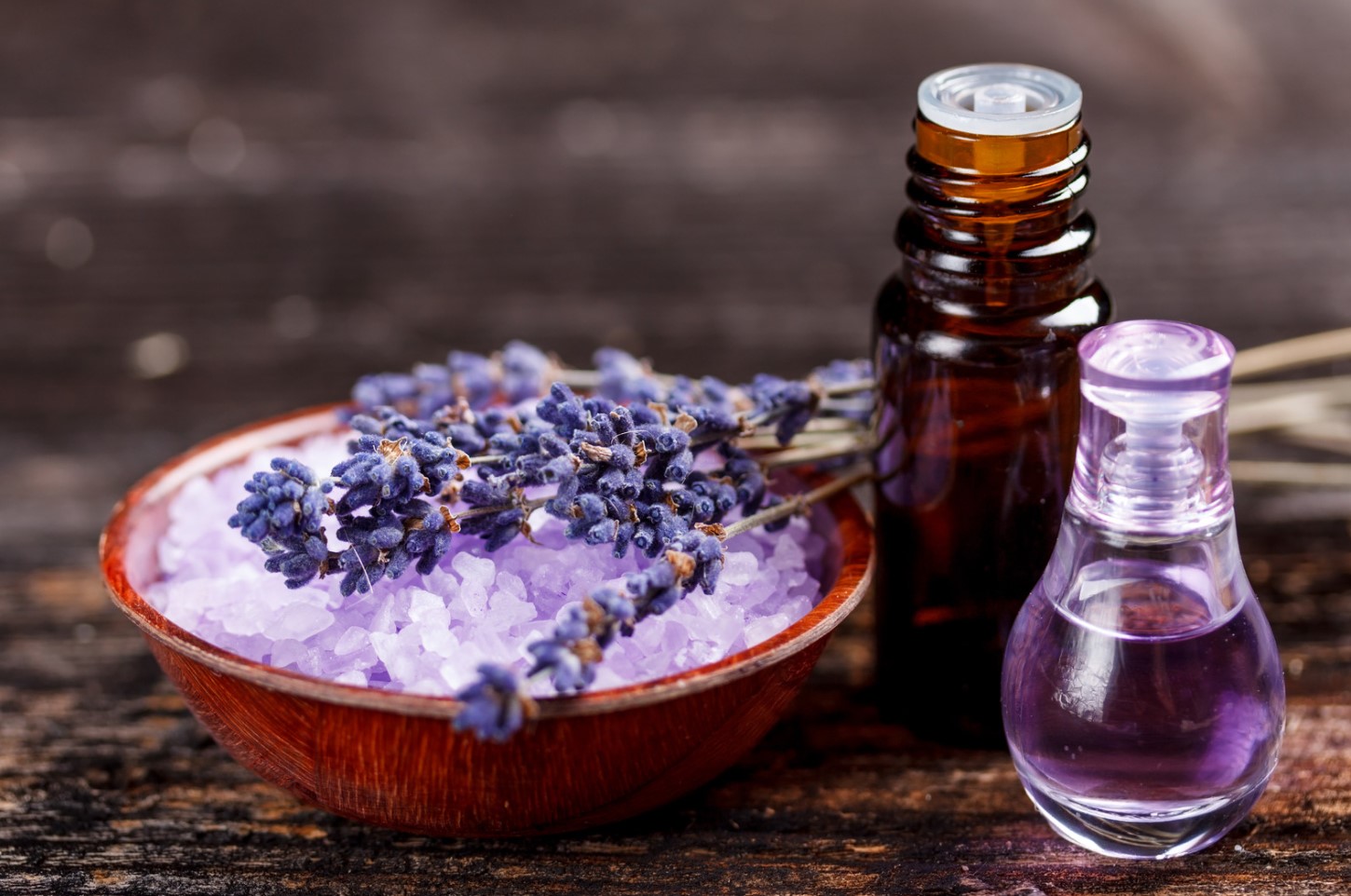
Repelling Insects And Mosquitoes
Summer is approaching fast and so are mosquitoes! These pests can ruin any outdoor activity, leaving us with itchy bites and a bad mood. Fortunately, nature has gifted us with an amazing solution to repel these pesky insects: Lavender Oil. This essential oil is a natural and effective insect repellent that can keep mosquitoes at bay while providing a pleasant aroma to your surroundings.
Lavender Oil has insecticidal and anti-inflammatory properties that make it a powerful natural bug deterrent. It is also safe to use and does not contain harsh chemicals often found in commercial insect repellents. Simply mix lavender oil with a carrier oil, such as fractionated coconut oil, and apply it on your skin before heading outdoors. You can also diffuse it in your home to keep mosquitoes away.
- Ingredients:
- 10-15 drops of Lavender Oil
- 1 oz. of fractionated coconut oil
- Instructions:
- Mix the lavender oil and fractionated coconut oil in a small bottle or jar.
- Apply a small amount of the mixture on your skin, focusing on exposed areas like your arms and legs.
- Reapply as needed – usually every couple of hours or after swimming or sweating.
Not only does Lavender Oil repel insects, but it also has a calming effect on the mind and body, making it an excellent oil to diffuse during summer evenings. It can also relieve itching and inflammation caused by mosquito bites. However, it’s important to note that some people may be allergic to lavender oil. Always do a patch test before applying it to larger areas of your body, and if any adverse reactions occur, discontinue use.
In conclusion, using Lavender Oil as a natural insect repellent is a great way to enjoy the summer season without being bothered by mosquitoes. It’s easy, safe, and effective, making it a must-have in your essential oil collection. Happy summer!
Enhancing Mood And Uplifting Energy Levels
Are you feeling sluggish and low on energy? It’s not uncommon to experience occasional dips in our mood and energy levels. Thankfully, there are natural remedies that can help give us a boost without relying on caffeine or sugar. One such remedy is Lavender Oil, which has been shown to have mood-enhancing and energizing properties.
One way to use Lavender Oil for this purpose is by adding it to a diffuser or inhaling it directly from the bottle. The scent of Lavender Oil has been found to have a calming effect on the nervous system, which can help to reduce stress and promote feelings of relaxation. As a result, it can also have energizing effects by reducing feelings of fatigue and exhaustion.
- Another way to use Lavender Oil is by incorporating it into a massage oil or bath. When applied topically, Lavender Oil has been shown to have analgesic (pain-relieving) properties, which can help to relieve tension headaches or sore muscles that can zap our energy levels.
- Lavender Oil also has natural antiseptic properties, making it a great addition to any wound care regimen. By promoting healing and preventing infection, this versatile oil can help keep minor injuries from becoming bigger issues that might further drain our energy.
| BENEFITS OF LAVENDER OIL FOR ENHANCING MOOD AND ENERGY LEVELS |
|---|
| 1. Reduces feelings of stress and anxiety |
| 2. Increases feelings of relaxation and calmness |
| 3. Relieves pain and tension headaches |
| 4. Promotes wound healing and fights infection |
| 5. Boosts mood and energy levels without artificial stimulants |
Incorporating Lavender Oil into your daily routine can be a natural way to enhance your mood and uplift your energy levels. Whether inhaled, massaged into the skin, or added to a warm bath, the calming and healing properties of this versatile essential oil can have a powerful effect on your overall well-being.
Improving Digestive Health And Reducing Bloating
Improving Digestive Health And Reducing Bloating
Did you know that your gut health plays a huge role in your overall well-being? A healthy digestive system can boost your immune system, help you maintain a healthy weight, and even improve your mood. However, digestive problems such as bloating and indigestion are common issues that many people face. Luckily, there are natural remedies such as lavender oil that can help improve your digestive system and reduce bloating.
- Relaxation: Lavender oil is known for its relaxing properties. When you’re stressed, your digestive system can be affected. Incorporating lavender oil into your daily routine can help calm your nerves and promote relaxation, which can help your digestive system function properly.
- Antispasmodic: Lavender oil is also known for its antispasmodic properties. This means that it can help reduce muscle spasms in the digestive system, which can lead to bloating and discomfort. By inhaling or massaging lavender oil into your abdomen, you may be able to reduce bloating caused by excessive gas.
In addition to using lavender oil, there are other natural ways to improve your digestive health. Drinking plenty of water, eating a healthy diet rich in fiber, and exercising regularly are all great ways to improve your digestive function and prevent bloating. It’s also important to listen to your body and avoid foods that may trigger digestive issues for you.
| Food to Avoid | Alternative Options |
|---|---|
| Processed Foods | Whole Foods such as fruits, vegetables, and whole grains |
| Sugar and Artificial Sweeteners | Natural Sweeteners such as honey or stevia |
| Fatty Foods | Lean Proteins such as chicken, turkey, and fish |
Conclusion: Your digestive health is important for overall well-being. Incorporating lavender oil into your daily routine can help promote relaxation and reduce bloating. Additionally, incorporating a healthy diet and regular exercise can help improve digestive function and prevent bloating. Remember to listen to your body and avoid foods that may trigger digestive issues for you. With these tips, you can improve your digestive health and reduce bloating naturally!